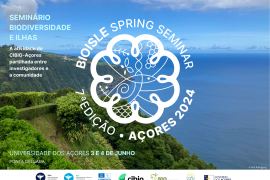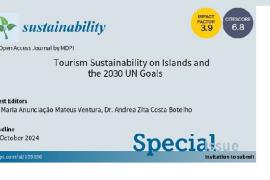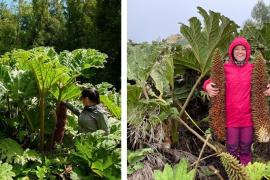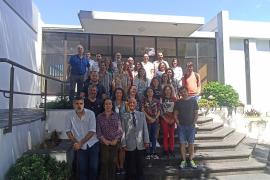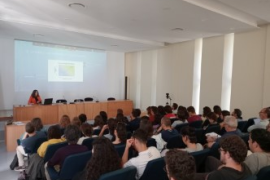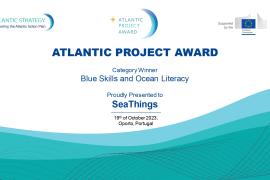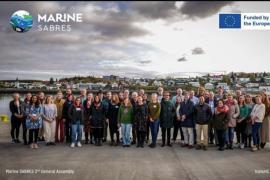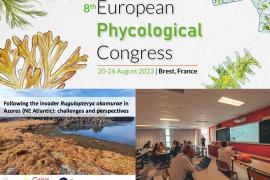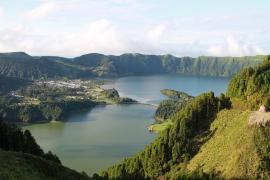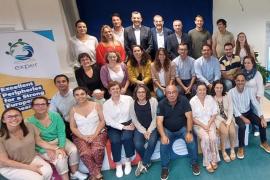CIBIO-Açores will be hosting the 7th edition of BIOISLE Spring Seminar to be held next June 3-4 in the amphitheater VIII University of the Azores. This annual event aims to disseminate the projects
The open access journal Sustainability (IF 3.889) is pleased to announce that we have launched a new Special Issue entitled “Tourism Sustainability on Islands and the 2030 UN Goals”. Given the depth
"Está já disponível o livro de resumos da 6ª edição do Spring seminar 2023 organizado pelo CIBIO-Açores, nos dias 1 e 2 de Junho na Universidade dos Açores em Ponta Delgada. O evento divulgou as
The SeaThings project, co-led by CIBIO Çores in the person of Prof. Ana Costa and in which CIBIO researchers Andrea Botelho and Manuela Parente also participated, was awarded the Atlantic Project
Between the 3rd and 5th of October, the 2nd General Assembly of the Marine SABRES (https://www.marinesabres.eu) was held at Hafnarfjörður, Iceland with the participation of the CIBIO elements Ana
On August 23rd, during the 8th European Phycological Congress hosted in Brest, France, João Faria, a researcher from CIBIO Azores, presented an oral session entitled " Following the invader
E se lhe dissessem que pior que os oceanos estão os lagos, barragens e albufeiras em relação à quantidade de plásticos e microplásticos que acumulam? Já nos habituámos a ouvir dizer que os



